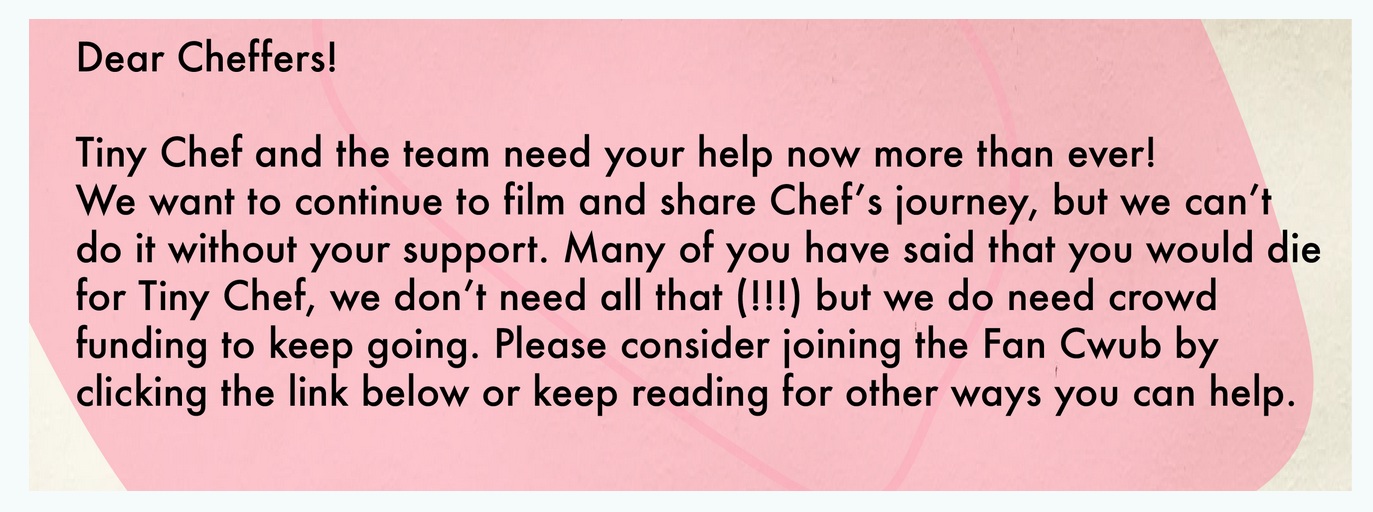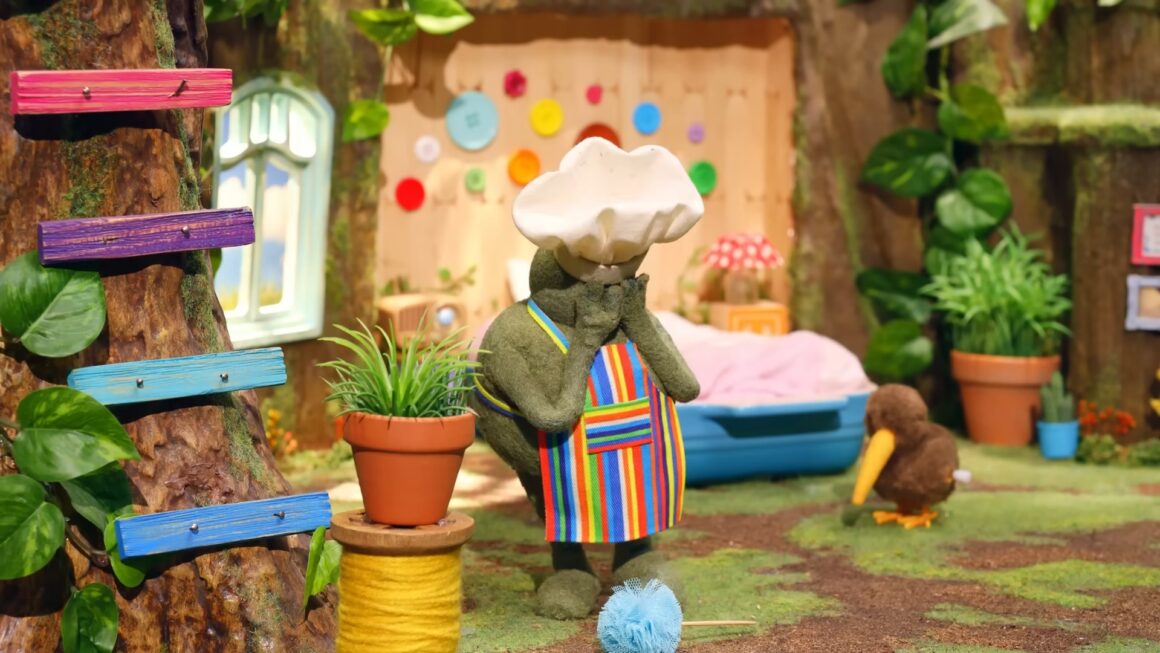Reina recently wrote about the cancellation of The Tiny Chef Show. When I saw the “We need your help” video from the creators, I didn’t feel sad. I felt emotionally manipulated.
After Reina posted her article, we had a talk. I took her hands in mine and I asked her:
Do you remember Barney?
The look on her face told me she knew exactly where I was going. Reina loved Barney as a child. So I asked her:
How would you have felt if you saw a Barney video like this?
Her answer, looking back as an adult?
“I probably would have had a psychotic episode.”
We both laughed, but she got the point. Children form very real bonds with characters who are not real. That’s what makes good children’s media powerful, and what makes emotional manipulation so dangerous.
I asked her if she’d mind if I wrote an article from a different stance. She didn’t mind.
Tiny Chef Is Not Sad. Tiny Chef Is a Brand.
When I watched the video from the Tiny Chef team, the tone wasn’t just sad. It was unsettling. Grown adults in the comments were devastated. Some said it broke them. And then I read the video description:
“Chef wouldn’t want anyone to blame his friends over there, he’s just deeply sad he doesn’t get to continue hosting a show he adores. Please let cheffy know how much he means to you in the comments he’s really feelin this one.”
Tiny Chef is not a real person. Tiny Chef is a puppet. A character. A brand. He cannot be “deeply sad.” Yet the show’s creators leaned on that illusion to create sympathy for… themselves.
It didn’t stop there. I went to their website hoping to see how to support the creators more constructively. Instead, I saw this:

“Many of you said you would die for Tiny Chef, we don’t need all that (!!!) but we do need funding to keep going.”
What? That’s not something you say to children. Or adults. That’s not marketing. It’s manipulation.
And when you click through? You’re asked for your name, email address, and to create an account just to see more information. No public breakdown of the membership plan. No upfront transparency. Is it COPPA compliant? Is it ethical?
This is not how you build trust with parents. It’s how you destroy it.
The Creators Deserve Empathy, Not Excuses
Let’s be clear: The cancellation wasn’t due to low quality. The show was critically acclaimed and won multiple Emmys. The creators poured heart and soul into it. That matters.
But here’s the financial truth:
- Stop-motion is expensive. Much more expensive than computer animation or live-action.
- The studio behind Tiny Chef, Factory Transmedia, filed for bankruptcy.
- Even with network support, the show was not profitable enough to justify its cost in a risk-averse environment.
- A major merger between Paramount Global and Skydance added uncertainty that made expensive projects like this vulnerable.
- Nickelodeon let the contract end early rather than renew during the merger’s limbo.
It’s entirely reasonable for them to feel disappointed, frustrated, even heartbroken. Losing your job hurts. Losing a creative project you love? Devastating.
That doesn’t give you a free pass to blur reality for the sake of funding.
A Teachable Moment… Missed
What could they have done instead? They could have treated their audience, children and adults alike, with respect.
- They could have said: “We’re proud of what we made. We’re sad it’s over, but we’re grateful.”
- They could have explained: “Sometimes projects end, not because they failed, but because the world changes.”
- They could have taught: “When one door closes, another opens. That’s true for us, and it’s true for you.”
This could have been a teachable moment. An honest, empowering one. Instead, they chose a path that crossed a line.
Why This Matters in the Age of AI
We are entering an era where the line between real and artificial is harder than ever for children to understand. That’s not a distant concern. It’s happening right now. Kids are growing up surrounded by influencers, VTubers, AI-generated characters, and animated shows that often present themselves as “real” friends.
Children’s media must help young audiences form a healthy sense of what is real and what is fictional. They need anchors in truth. Not guilt trips. Not emotional exploitation.
If the people behind well-loved shows are willing to leverage fake sadness from a fictional character to pressure parents into giving money, we have a serious problem.
The truth is simple: Chef is not sad. Chef is not real. The humans behind the show are sad, and they deserve compassion. They also need to act like professionals in a space designed for children.
Yes, fundraising is hard. Yes, creators often struggle when networks cancel shows. But emotional manipulation is not the answer. Especially not in children’s media.
The people behind Tiny Chef need to get it together. Not just because it’s what’s best for them. Children deserve better.






